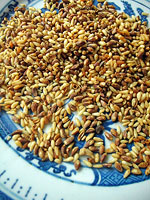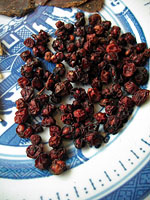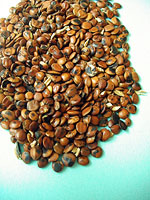Insomnia can occur for many reasons, including stress, health problems and change of lifestyle or environment. A well-balanced diet helps the body function well, makes you fall asleep faster and deeper. Some foods promote sleep, while others may affect the sleep pattern. If you are having a trouble sleeping, you need to pay attention to what you eat.
- Eating too much or too late delays the emptying of the stomach, leading to physical discomfort when lying down. Therefore, the evening meal should be light and finished three hours before bedtime.
- For those who often have an upset stomach, gas or abdominal distention, they should limit the amount of heavy, fatty and spicy foods consumes.
- Caffeine is a stimulant that keeps you from sleeping, so limit the consumption of coffee, cola, tea, sodas and chocolate. Avoid drinking coffee in the late afternoon and evening. Remember that some OTC drugs also contain caffeine such as pain killers.
- Limit the amount of liquids after dinner, as a full bladder will often wake you up during the night.
- Although alcohol may make you feel sleepy, but it also disturbs brain functioning leading to less restful sleep and frequent awakening.
- Smoking seems to have a calming effect; however nicotine is actually a brain stimulant and can cause sleep problems.
- Some people may be sensitive to flavor enhancers and preservatives such as monosodium glutamate (MSG), which may cause stomach upsets, headache and other reactions. These substances are found in processed foods and Asian foods, so avoiding these foods may help you sleep better.
- Nocturnal hypoglycemia (low blood glucose at night) is an important cause of insomnia, especially for those who eat too many refined carbohydrates. A bedtime snack can keep the blood sugar level steady throughout the night; suitable foods are crackers, whole grain cereals or noodles.
Generally, people may react differently to the same food, you need to experiment and learn your own "trigger" foods.
In traditional Chinese medicine (TCM), each of us has some uniqueness in regarding to body structural, physiological and psychological aspects. These individual characters combine to form
body constitution that determines how we live and behave, and our susceptibility to pathogens and disease development.
Eating according to your body type will help achieve overall health and improve your ability to get a restful sleep.
TCM views insomnia as a manifestation of restless
spirit, and always accompanied with heart disharmony. The heart rules the spirit, eating food and herbs that nourish the heart help calm the mind and ease insomnia. The beneficial ingredients include longan aril, red date, mulberry, Chinese arborvitae kernel, schisandra, reishi mushroom, lotus seed, poria, lily bulb, wheat and barley.

Chinese arborvitae kernel |
 Schisandra Schisandra |

Sour jujube seed |
People under emotional stress usually have an overly active mind; they have to soothe the stagnated liver and regulate qi (vital energy) flow in relieving emotional strain, so as to encourage both body and mind to sleep. Good foods for this are oranges, tangerines, celery, daylily, jasmine, rose bud, chrysanthemum, white plum flower, and dried tangerine peel/pith. Frozen and raw foods, in particular those with a
sour taste, impede the qi flow of the body and thus should be limited.
In addition, mentally demanding jobs and prolonged stress exhaust the fundamental substances of the body, lead to under-nourishment, further increasing the severity of insomnia. Foods and herbs like angelica root, fleeceflower root, wolfberry, carrot, spinach, animal liver, lychee, red dates, grape, meats, fishes, mushrooms, ginseng and longan aril can be used to replenish the storage of qi and blood. Some insomnia individuals are also likely to experience digestive problems, ingredients like Chinese yam, red dates, poria, coix seed, pilose asiabell root, largehead atractylodes rhizome, lotus seed, hyacinth bean and hawthorn fruit should be added to overcome this. People who have had major illness may have sleep problems during recovery, they could use these foods to restore the unbalanced state to harmony and promote sleep as well.
Elderly people tend to wake early or wake up often at night, due to poor circulation and atherosclerosis in the brain. They need to protect their brains and improve the blood circulation. Foods that help to lower blood lipids and blood pressure are seaweed, laver, hawthorn fruit, black fungus, mushrooms, garlic, onion, lotus leaf, lotus plumule, celery, water chestnut, and salted whole jellyfish. Herbs like tall gastrodia tuber, Sichuan lovage, acorus, selfheal fruit spike, cassia seed, achyranthes root, and chrysanthemum can be used to make medicinal dishes to improve brain function.
Chronic painful conditions usually interrupt sleep. When people also have a sore back, cold limbs and a pale complexion that indicate a tendency of yang deficient, they are recommended to eat more warming foods (which are yang foods) like mutton, chives, cherry, eels, onion, animal kidneys, walnut, chestnut, shrimps and beans, which enhance the overall body functioning and help ease the pain. Furthermore, based on the
nature of the pain, tonic herbs like dodder seed, psoralea, astragalus root, peach kernel, cistanche, processed rhemannia rhizome, red sage root and notoginseng can be used to make medicinal dishes for improving local circulation and relieving pain.

 Schisandra
Schisandra


